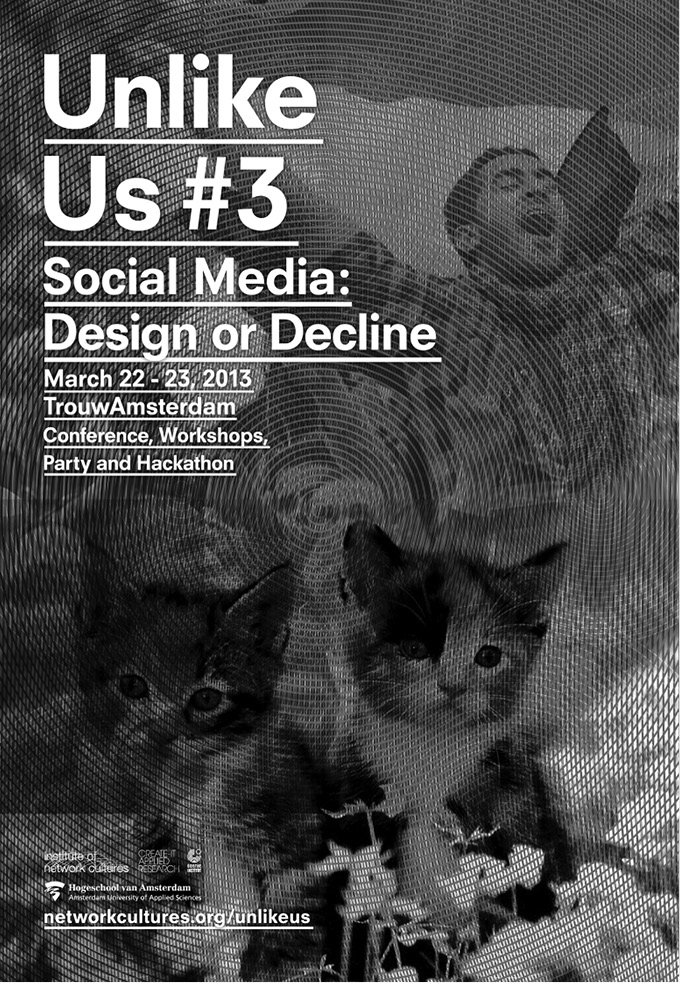Unlike Us Reader
Social Media Monopolies and Their Alternatives
Editors: Geert Lovink and Miriam Rasch
Copy editing: Rachel Somers Miles
Design: Katja van Stiphout
Cover design: Giulia Ciliberto and Silvio Lorusso
ePub development: Silvio Lorusso
Publisher: Institute of Network Cultures, Amsterdam, 2013
ePub ISBN: 978-90-818575-5-0
Printed version ISBN: 978-90-818575-2-9
Contact
Institute of Network Cultures
phone: +31205951866
fax: +31205951840
email:
web: www.networkcultures.org
Order a copy of this book by email:
A PDF of this publication can also be downloaded freely at:
www.networkcultures.org/publications/inc-readers
Join the Unlike Us mailinglist at:
http://listcultures.org/mailman/listinfo/unlike-us_listcultures.org
Supported by: CREATE-IT applied research, Amsterdam University of Applied Sciences (Hogeschool van Amsterdam) and Stichting Democratie en Media
Thanks to Margreet Riphagen at INC, to all of the authors for their contributions, Patrice Riemens for his translation, Rachel Somers Miles for her copy editing, and to Stichting Democratie en Media for their financial support.
This publication is licensed under Creative Commons
Attribution  NonCommercial
NonCommercial  ShareAlike
ShareAlike  3.0 Unported (CC BY-NC-SA 3.0).
3.0 Unported (CC BY-NC-SA 3.0).
To view a copy of this license, visit http://creativecommons.org/licenses/by-nc-sa/3.0/.
Previously published INC Readers:
The INC Reader series is derived from conference contributions and produced by the Institute of Network Cultures. The readers are available in print and PDF form.
INC Reader #7: Geert Lovink and Nathaniel Tkacz (eds), Critical Point of View: A Wikipedia Reader, 2011.
INC Reader #6: Geert Lovink and Rachel Somers Miles (eds), Video Vortex Reader II: Moving Images Beyond YouTube, 2011.
INC Reader #5: Scott McQuire, Meredith Martin and Sabine Niederer (eds), Urban Screens Reader, 2009.
INC Reader #4: Geert Lovink and Sabine Niederer (eds), Video Vortex Reader: Responses to YouTube, 2008.
INC Reader #3: Geert Lovink and Ned Rossiter (eds), MyCreativity Reader: A Critique of Creative Industries, 2007.
INC Reader #2: Katrien Jacobs, Marije Janssen and Matteo Pasquinelli (eds), CLICK ME: A Netporn Studies Reader, 2007.
INC Reader #1: Geert Lovink and Soenke Zehle (eds), Incommunicado Reader, 2005.
All INC Readers, and other publications like the Network Notebooks Series and Theory on Demand, can be downloaded as a PDF for free from www.networkcultures.org/publications.
Or check www.scribd.com/collections/3073695/INC-Readers for print on demand, and www.issuu.com/instituteofnetworkcultures for online reading.
CONTENTS
Geert Lovink
THEORY OF SOCIAL MEDIA
Bernard Stiegler
David M. Berry
Ganaele Langlois
Nathan Jurgenson and PJ Rey
Martin Warnke
Andrea Miconi
Yuk Hui and Harry Halpin
CRITICAL PLATFORM ANALYSIS
Korinna Patelis
Jenny Kennedy
Mercedes Bunz
Caroline Bassett
Ippolita and Tiziana Mancinelli
PLATFORM CASE STUDIES
Mariann Hardey and David Beer
D.E. Wittkower
Leighton Evans
Andrew McNicol
Robert W. Gehl
ARTISTIC INTERVENTIONS
Simona Lodi
Alessandro Ludovico and Paolo Cirio
Louis Doulas and Wyatt Niehaus
Brad Troemel
Tatiana Bazzichelli
ACTIVISM AND SOCIAL MEDIA USES
Marc Stumpel
Pavlos Hatzopoulos and Nelli Kambouri
Tiziana Terranova and Joan Donovan
ALTERNATIVES
Lonneke van der Velden
Sebastian Sevignani
Florencio Cabello, Marta G. Franco and Alexandra Hach
Solon Barocas, Seda Grses, Arvind Narayanan and Vincent Toubiana
APPENDICES
Unlike Us #1 in Limassol
Unlike Us #2 in Amsterdam
A World Beyond Facebook: Introduction to the Unlike Us Reader
/
Social slogans of the day: Das Ich ist nicht zu retten, Ernst Mach I fear the day when the technology overlaps with our humanity. The world will only have a generation of idiots, Albert Einstein I can buy a Ford, Toyota, BMW or Smart car and drive on the same roads and use the same fuel. Everything is interchangeable about them except the key that gets me in and starts the engine. Its a good model for how our communication systems should work, at all levels, Dave Winer Take a position, be an author the European concert of networks I am inspired by the internet, Johan Sjerpstra It is a small step from distributed to dispersion Neither information nor a drug fix ever gives any happiness when you have it, but will make you miserable when you dont, Michel Serres I am traveling a lot, online.
Whether or not we are in the midst of yet another internet bubble, we can all agree that social media dominates the use of the internet and smartphones. The emergence of apps and web-based user-to-user services, driven by an explosion of informal dialogues, continuous uploads, and user-generated content, have greatly empowered the rise of participatory culture. At the same time, monopoly power, commercialization, and commodification are on the rise as well, with just a handful of social media platforms dominating the social web. Tensions are increasing with the question of what to make of the influence and impact of social media? Two contradictory processes both the facilitation of free exchanges and the commercial exploitation of social relationships seem to lie at the heart of contemporary capitalism: empowerment and control, freedom and paranoia. On the one hand new media create and expand the social spaces through which we interact, play, and even politicize ourselves; on the other hand, in most countries they are owned by literally three or four companies that have phenomenal power to shape the architectures of such interactions. Whereas the hegemonic internet ideology promises open, decentralized systems, why do we, time and again, find ourselves locked into closed, centralized environments? Why are individual users so easily lured into these corporate walled gardens? Do we understand the long-term costs that society will pay for the ease of use and simple interfaces of their beloved free services?
The accelerated growth and scope of Facebooks social space is unheard of. As of late 2012, Facebook is said to have more than one billion active users, ranking in the top three first destination sites on the web, worldwide. Its users willingly deposit a myriad of snippets of their social life and relationships on a site that invests in an accelerated play of exchanging information. On the different platforms, from LinkedIn to Google+, we are all busy befriending, ranking, recommending, retweeting, creating circles, uploading photos and videos, and updating our status. Numerous (mobile) applications orchestrate this offer of private moments in a virtual public, seamlessly embedding the online world in the everyday life of users.

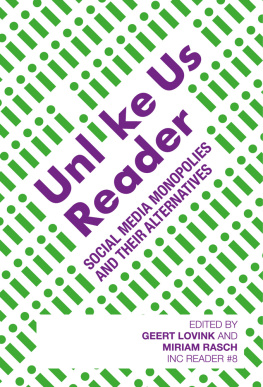
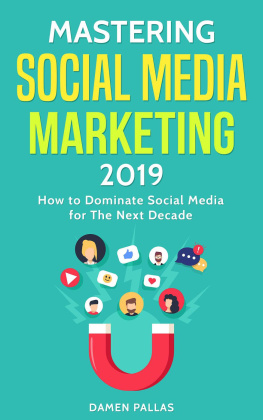

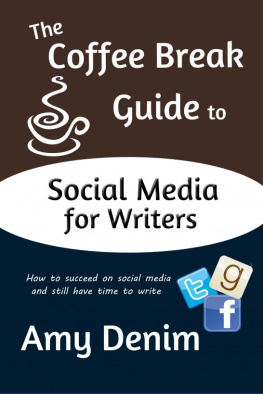
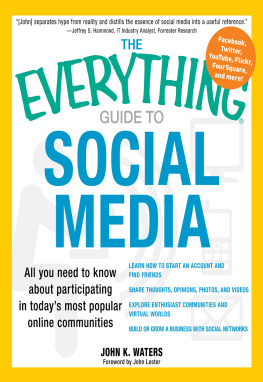
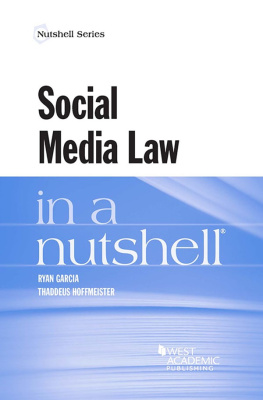
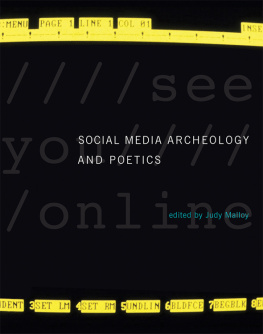
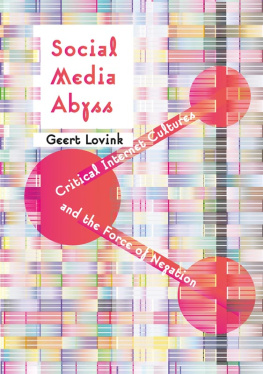
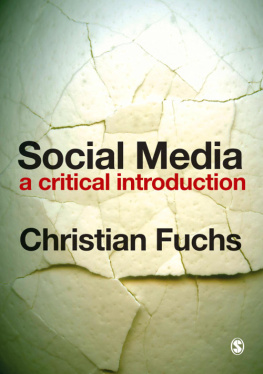
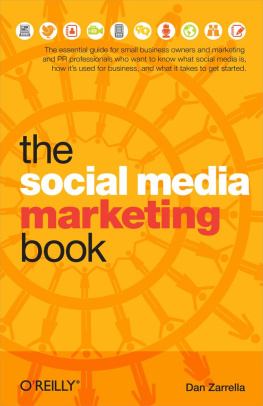

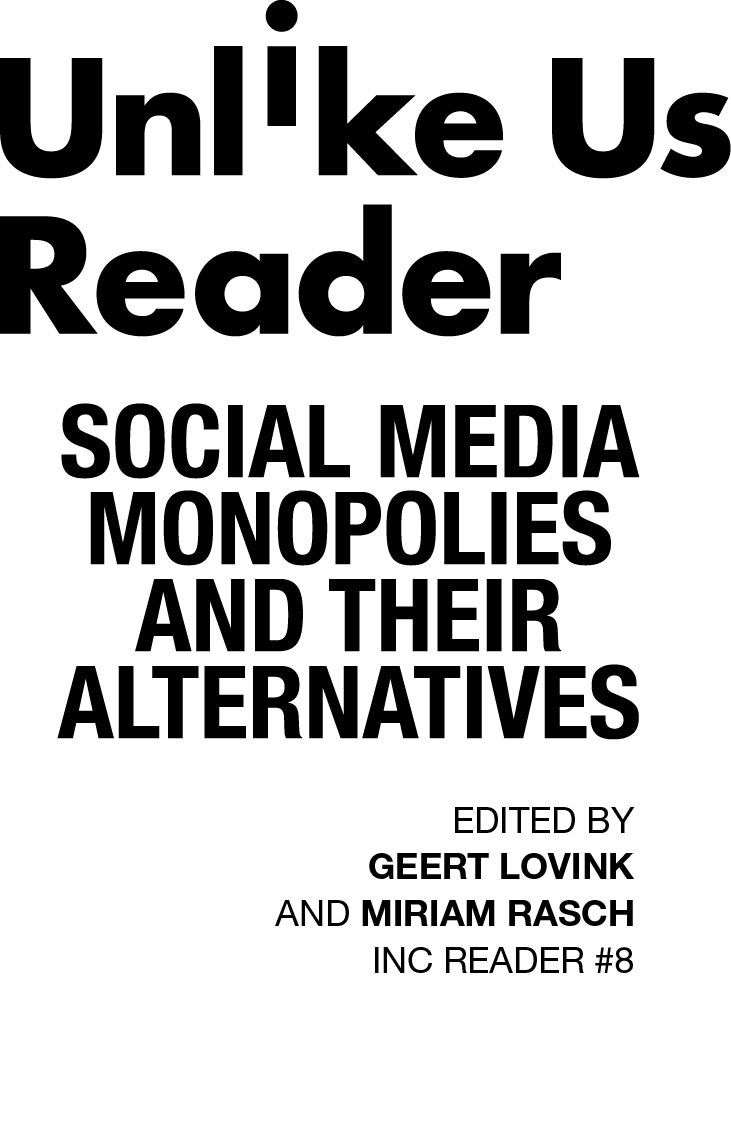
 NonCommercial
NonCommercial  ShareAlike
ShareAlike  3.0 Unported (CC BY-NC-SA 3.0).
3.0 Unported (CC BY-NC-SA 3.0).